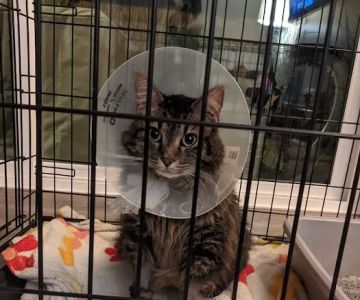Can a Non-Veterinarian Own a Veterinary Practice in Wisconsin?
Can a Non-Veterinarian Own a Veterinary Practice in Wisconsin?
- Understanding Veterinary Practice Ownership
- Laws and Regulations in Wisconsin
- Exceptions and Possibilities for Non-Vets
- Real-Life Examples and Legal Implications
- Guidance for Non-Veterinarians Interested in Owning a Practice
Understanding Veterinary Practice Ownership
Owning a veterinary practice is a dream for many who have a passion for animals but may not necessarily have a veterinary degree. For non-veterinarians, the idea of owning a clinic may seem daunting, especially when considering the laws surrounding veterinary practice ownership. In my journey of learning about veterinary practice ownership, I’ve come across many potential clinic owners, some of whom are not veterinarians themselves. The question often arises: can a non-veterinarian own a veterinary practice in Wisconsin? In this article, we’ll explore the intricacies of veterinary practice ownership in Wisconsin and answer this question in detail.
Laws and Regulations in Wisconsin
In Wisconsin, the laws governing the ownership of a veterinary practice are similar to those in many other states. Generally speaking, to own a veterinary practice in Wisconsin, one must have a veterinarian responsible for the practice’s clinical operations. The Wisconsin Veterinary Examining Board (WVEB) regulates veterinary practices, and it requires that only licensed veterinarians be allowed to perform the medical aspects of animal care, such as diagnoses, treatments, and surgeries. However, this doesn’t necessarily mean that a non-veterinarian cannot own a clinic.
The key regulation here is that while a non-veterinarian can technically own a practice, they cannot directly perform veterinary services or have control over clinical decisions. Ownership, therefore, would typically involve hiring licensed veterinarians to handle medical care and clinical activities. This is an important distinction for anyone interested in owning a veterinary clinic, as it places limits on the scope of the owner’s responsibilities.
Exceptions and Possibilities for Non-Vets
While the general rule is that a non-veterinarian can own a veterinary practice, certain exceptions and possibilities exist. For example, a non-veterinarian can invest in a practice or hold shares in a veterinary practice as part of a business partnership. This can be an attractive opportunity for individuals who are interested in the business side of veterinary care but do not have the qualifications to practice as a veterinarian. Additionally, many non-veterinarian owners take on managerial and administrative roles, handling everything from staffing to marketing and customer relations, while veterinarians are left to manage the clinical care.
Another potential exception to the rule is the possibility of forming a business partnership with a licensed veterinarian. In such partnerships, the non-veterinarian might provide the financial resources and business acumen, while the veterinarian would provide the necessary medical expertise. This allows the non-veterinarian to fulfill their ownership role while ensuring that the practice complies with all state regulations concerning veterinary services.
Real-Life Examples and Legal Implications
In my research, I came across a few real-life examples of non-veterinarians who have successfully owned and operated veterinary practices in Wisconsin. One case involved a businessman who partnered with a veterinarian to open a new clinic in a rural area. The businessman was responsible for the financial and managerial side of the business, while the veterinarian handled all clinical decisions. This partnership allowed the businessman to pursue his passion for animals and their care, without the burden of becoming a veterinarian himself. Another case involved a non-veterinarian who invested in a local veterinary practice and helped it grow, providing support in terms of marketing and customer service.
These examples highlight the possibilities available for non-veterinarians, but they also underscore the importance of adhering to Wisconsin’s regulations. Non-veterinarian owners must ensure that licensed veterinarians are always responsible for clinical practices, or risk facing legal repercussions. In my experience, I’ve noticed that understanding the legal boundaries of veterinary practice ownership is key to a successful partnership.
Guidance for Non-Veterinarians Interested in Owning a Practice
If you’re a non-veterinarian interested in owning a veterinary practice in Wisconsin, there are several steps you can take to get started. First, it’s important to consult with a legal expert who specializes in veterinary law. They can help you understand the state’s specific requirements and guide you through the process of setting up a compliant practice.
Next, you’ll need to focus on building the right team. This means partnering with experienced veterinarians who are licensed and familiar with the regulations surrounding veterinary care in Wisconsin. You will also need to find a suitable location for your practice, keeping in mind the needs of the local community and ensuring that you can provide the services required by your target market.
Finally, you should develop a solid business plan that addresses everything from financing to staffing, marketing, and customer service. A well-thought-out plan can help ensure that your practice runs smoothly and successfully, allowing you to focus on what matters most: providing quality care for animals.
For more guidance on veterinary practice ownership or to explore potential partnerships, feel free to contact Hidden Brook Veterinary. Our team can provide advice on starting and managing a veterinary practice, and help you navigate the legal and business aspects of the process.
Related Articles

Aug 20, 2025

Aug 19, 2025

Aug 19, 2025

Aug 19, 2025

Aug 19, 2025

Aug 19, 2025

Aug 19, 2025

Aug 19, 2025

Aug 18, 2025
Subscribe to Our Newsletter
Get weekly pet care tips, vet-approved advice, and updates on nearby pet stores and clinics.


